For many Bahamas tourists, lobster dinners are as much a part of their Caribbean vacations as white sands and clear, blue waters.
“A trip to The Bahamas is about sun, sand and seafood,” says Felicity Burrows, Deputy Chief of Party for the Caribbean Marine Biodiversity Program. “But the Bahamas lobster is about more than delicious meals for tourists. The fishery affects so many people.”
In fact, approximately 5 million pounds of Bahamas lobster tails are exported to the United States and Europe annually. Ensuring that significant industry is sustainable is vital for the viability of the Bahamas ecosystem and the country’s fishing tradition.
Bahamas spiny lobster was recently certified sustainable by the Marine Stewardship Council (MSC), the only Caribbean lobster fishery to hold this certification.
The Bahamas spiny lobster industry employs about 9,000 fishers, creating a $90 million industry. The lobsters feature prominently in local diets and on local restaurant menus, but most of the lobster tails are exported to the United States and Europe.
Some lobsters are caught by traps. More commonly, fishers place structures – often called lobster condos or casitas – on the ocean floor, and the lobsters seek them out for shelter. These are not traps; the lobsters can come and go as they please. Fishers then dive to the structures and collect the lobsters.
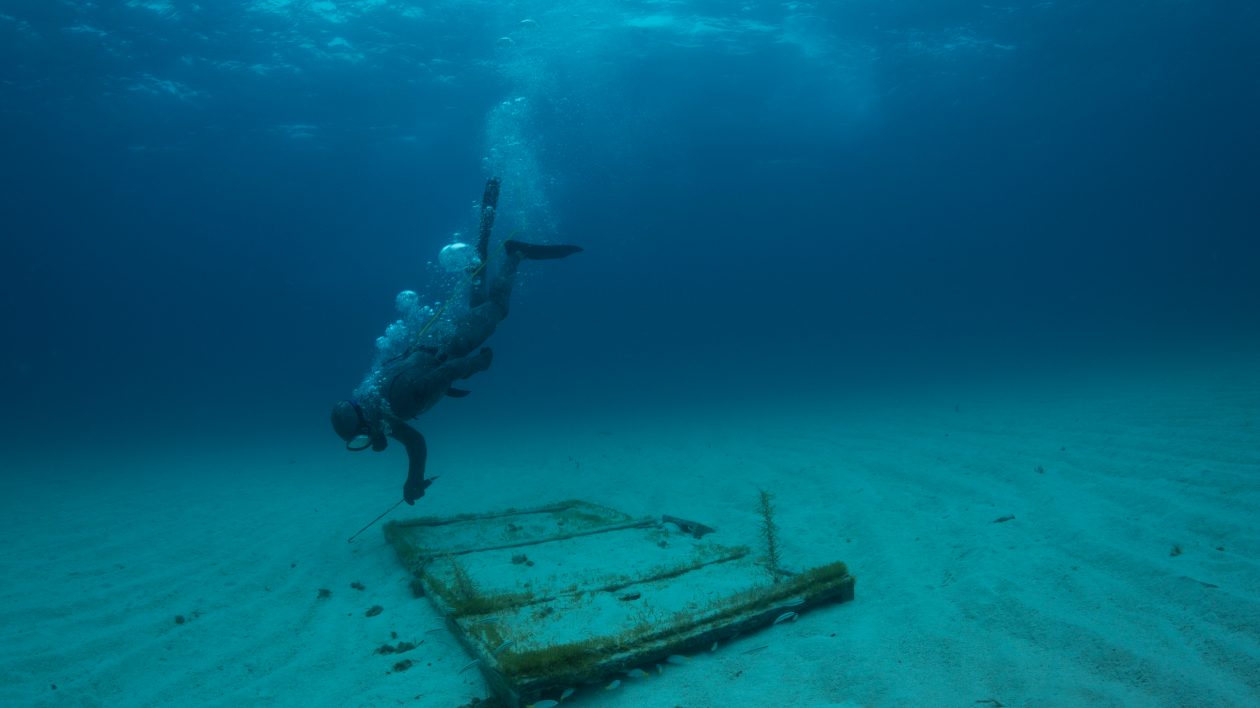
Illegal harvesting of young lobsters and out-of-season lobsters threatened the long-term viability of the fishery. “If you’re over-exploiting the juveniles of the species, you’re reducing your future stocks,” says Burrows. “That overharvesting in turn affects the entire ecosystem. Sharks, sea turtles and many other species feed on lobsters. It also affects the culture of fishing so important to the Bahamas.”
This challenge was recognized in 2009, and spurred an extensive process of collaborative, dedicated work to improve the fishery. This culminated in the fishery being certified sustainable by the Marine Stewardship Council. To achieve MSC certification requires an independent, science-based assessment that determines if a fishery is well-managed and sustainable.
According to a press release announcing the MSC certification, the leading label for sustainably harvested seafood:
Since 2009, World Wildlife Fund (WWF), Bahamas Marine Exporters Association, The Bahamas Department of Marine Resources and The Nature Conservancy (TNC), have been driving improvements to the fishery. Through a Fishery Improvement Project (FIP) addressing governance, fishing practices, and environmental impacts, their efforts have been aimed at helping the fishery meet the MSC standard. Several of WWF-US’s corporate partners —Costco Wholesale, Hilton Worldwide, Hyatt Corporation, The Kroger Co., SUPERVALU Inc., and Tequesta Bay Foods, Inc.—provided support for the FIP and engaged its Bahamian suppliers, government officials, and other stakeholders to advance improvements on the water.
This process led to a 19-month assessment on the health of the lobster fishery, the impact of fishing on the marine environment and the management of the fishery. While regulation and monitoring are central to MSC certification, on-the-ground relationships with fishers was critical to success.
“If you talk to fishers about any process that leads to protective measures, the fishers fear it will mean more restrictions and there is a tendency to push back,” says Burrows. “It is essential to bring fishers into the process from the very beginning. A success like this is only possible if we work collectively.”
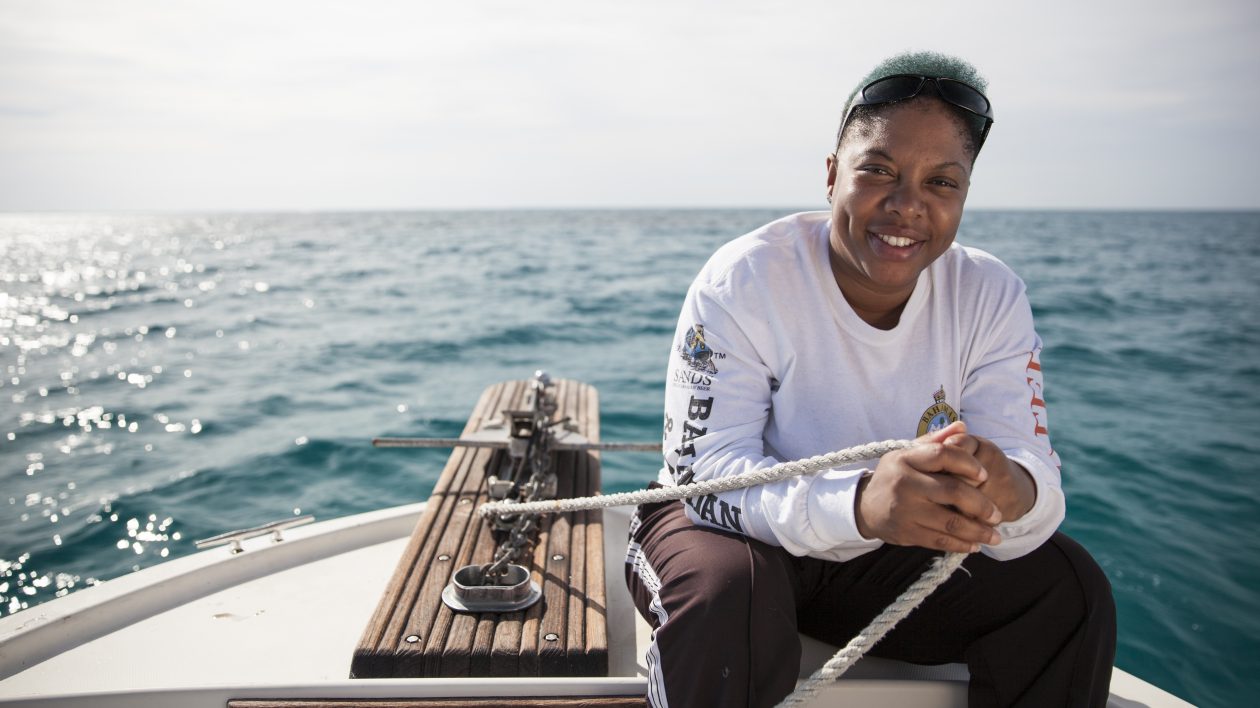
She notes that fishers soon recognized they had an opportunity to preserve their economy and culture. “We’ve been able to see what other Caribbean countries have experienced with the loss of their fisheries,” she says. “In The Bahamas, we still have relatively healthy fish stocks. Fishers recognize how important the spiny lobster fishery is to their livelihoods and way of life.”
Natalie Miaoulis, conservation practitioner for The Nature Conservancy in The Bahamas, has been called in media reports “the brains and brawns behind the Bahamas spiny lobster fishery improvement plan.” She also attributes a large part of the success of this certification process to the involvement of fishers and others in the industry, a main pillar in the way that The Nature Conservancy engages in fisheries projects.
“It has been absolutely critical to have coordinators on the ground who can talk to all the stakeholders and bring them together,” Miaoulis says. “From the beginning, we recognized the importance of supporting the livelihoods of community members while also protecting nature. It is part of The Nature Conservancy’s vision where both people and nature thrive.”
The Nature Conservancy has worked “on the docks” around the world for more than 25 years to ensure that fisheries are managed in a way that results in both stable supplies of seafood and biodiversity conservation. The Conservancy applies the best-available science, innovative tools and technologies, and work with industry partners, fishing communities and willing governments to support effective fisheries reform.
The Bahamas spiny lobster is currently the only warmwater lobster fishery recognized with MSC certification. Seafood consumers can help encourage and expand sustainable fisheries by purchasing MSC-certified spiny lobster.
The Bahamas spiny lobster is currently the only warmwater lobster fishery recognized with MSC certification. The certification includes regulations to reduce bycatch, and also includes an export agreement that does not accept under-sized tails.
Seafood consumers can help encourage and expand sustainable fisheries by purchasing MSC-certified spiny lobster. “We believe in using the power of the market to exert change,” says Miaoulis.
The news of the certification was greeted with celebration in The Bahamas. “This is a proud moment for The Nature Conservancy and The Bahamas!” said Shenique Smith, Director of The Nature Conservancy in The Bahamas, in a press release.
“We are pleased to have led on the ground implementation that resulted in this certification by working with stakeholders such as fishers, exporters, and government. Still, as a condition to certification, we must remain diligent in ensuring foreign and domestic illegal fishing is mitigated in order to protect Bahamian families and livelihoods that are dependent on the sustainability of the spiny lobster industry.”
Mialoulis agrees, and calls this a momentous occasion for the fishers and local communities in the Bahamas. “They have worked so hard for this,” she says. “This is a celebration and a reward for their commitment to sustainable practices.”
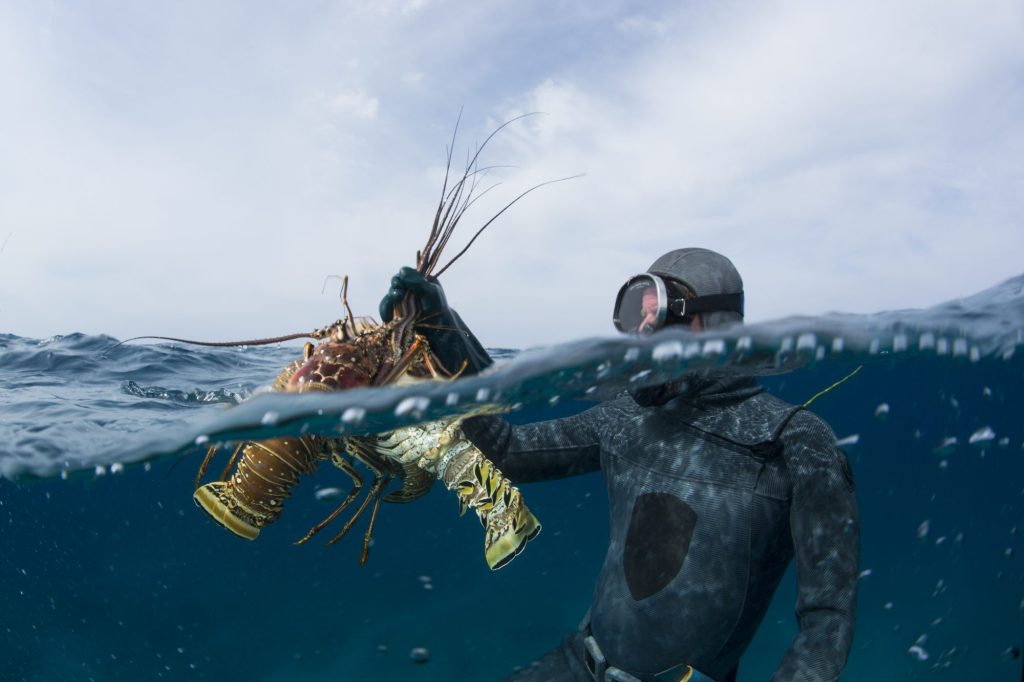

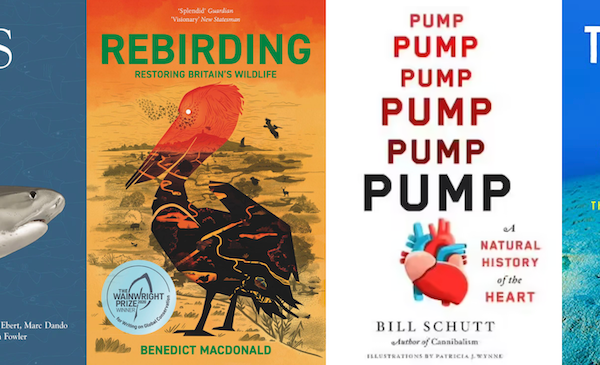
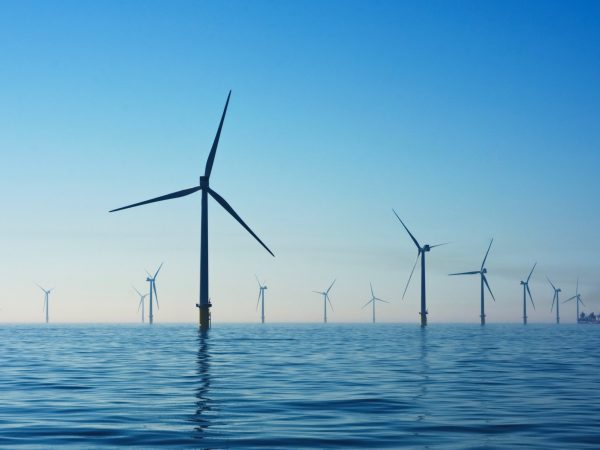
What about the viability of spiny lobster farming in the Bahamas?
Wow I liked your lobster condo’s very good idea! I would like to participate in lobster farming where can I find out about this? I have a place in Bahamas please contact me. ernest ryder-ernestryder@msn.com. Also I heard about the lobster virus and was interested in studying a cure for this I have several idea’s that do not involve antibiotics! I was raised on a hydroponic in florida and attended microscopy and biology classes when young.
Does this mean they come from clean water?
In fact, why I’m I giving hard earned money to a group that just promotes the old paradigm of use and abuse of animals and exploiting our dying oceans??? Wake up Nature Conserancy. Get a backbone and start speaking the truth. There are 7.5 billion of us, and growing. We need Big changes. Today
Go Vegan! Most sustainable choice of all. Sorry but duh ; )
Sustainable or not, killing lobsters is still murder. Why can’t people just eat plants like they were designed to do? We don’t have a single canine tooth in our mouth therefore should not be eating animals. Besides lobsters have feelings just like us and have been known to scream when thrown in a pot of boiling water. Killing them is unethical. Please stop trying to justify this cruel practice of killing by saying it is ‘sustainable’. Thank you.
Save all the Lobster now and forever.